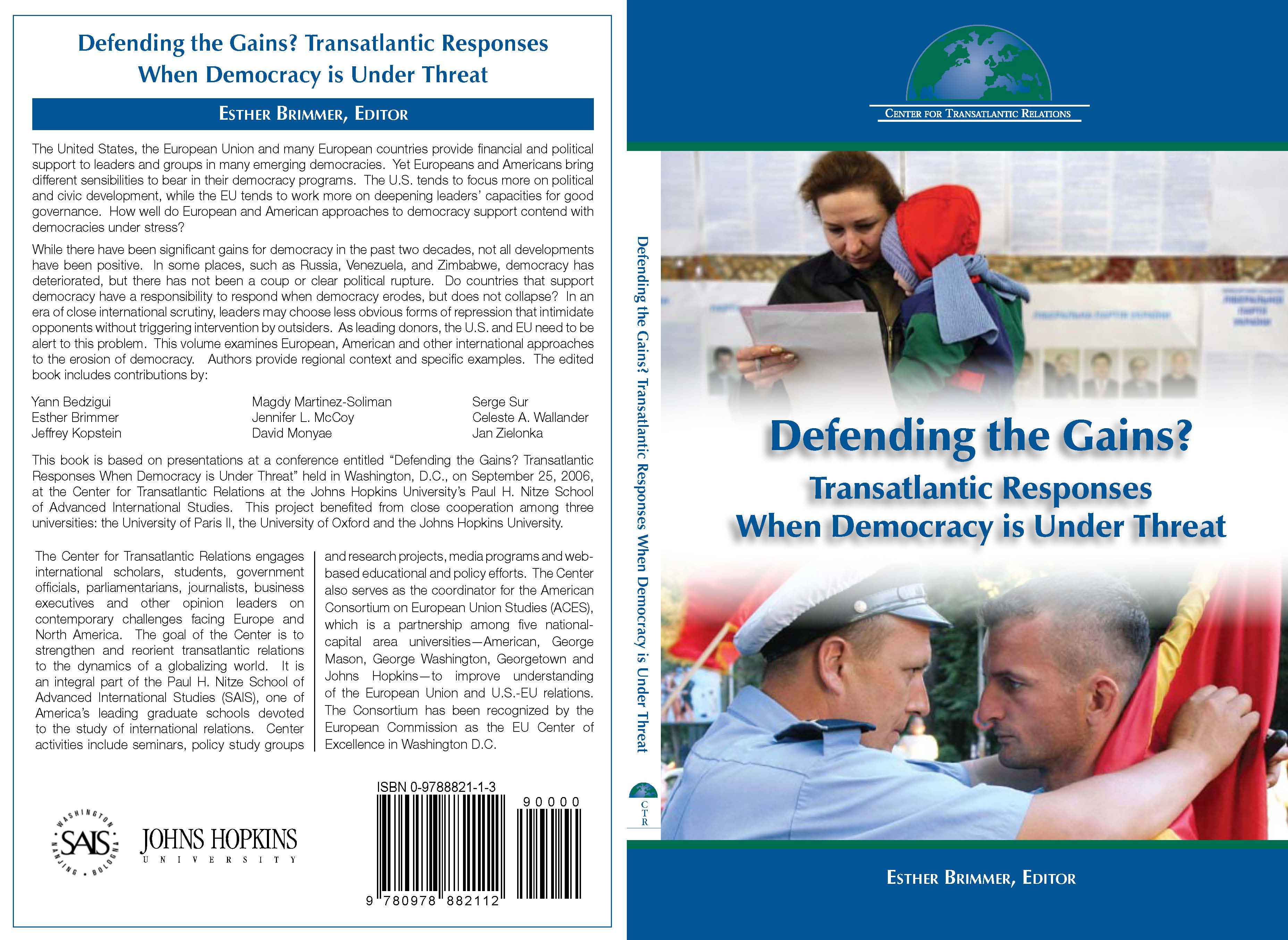
Esther Brimmer, Editor
If a nation’s fledgling democracy is in trouble, what should outsiders do? Esther Brimmer examines the effectiveness of U.S. and European responses when other countries’ newfound democratic gains begin to erode. Brimmer asks tough questions about democracy promotion in transatlantic diplomacy. Is it actually helping to deepen democracy around the world? Efforts have focused primarily on ways to encourage democracy where it does not exist, or to consolidate democracy where it has taken hold. But what can and should the United States and Europe do when democracies infringe upon basic democratic principles, or there is a general erosion of democracy? Is there a role for outsiders when democracy is under threat? Should the U.S. and EU support democracy or just stability? Do they need to confront a backlash against democracy or “democracy promotion”?
Chapter-1 Rethinking Transatlantic Responses When Democracy is Under Threat, Esther Brimmer
Chapter-2 Defending the Gains? Transatlantic Responses When Democracy is Under Threat, Serge Sur
Chapter-3 Democracy Promotion and Transatlantic Relations: A View from Canada, Jeffrey Kopstein
Chapter-4 Is Democracy the UN’s Business? The United Nations and Sustaining Democracy, Magdy Martinez-Soliman
Chapter-5 The United States, the European Union and the Consolidation of Democracy in Eastern Europe, Jan Zielonka
Chapter-6 The United States, Europe, and Democracy in West Africa, Yann Bedzigui
Chapter-7 The Russian Political System and U.S. National Interests, Celeste A. Wallander
Chapter-8 Case Study: Zimbabwe, David Monyae
Chapter-9 International Response to Democratic Crisis in Venezuela, Jennifer L. McCoy





